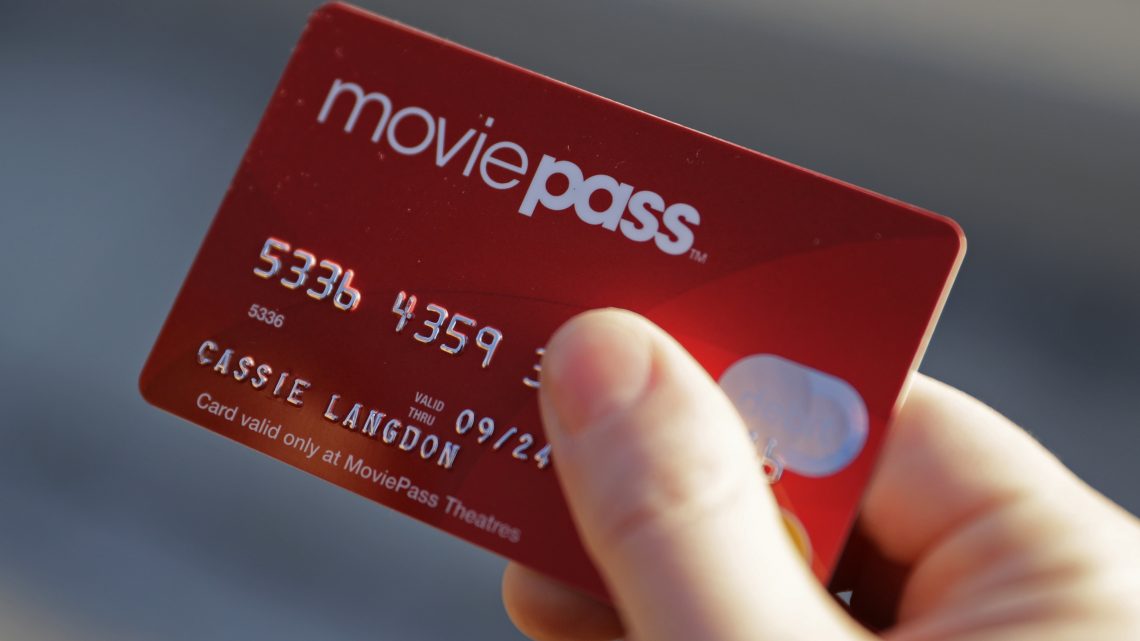
This Is Who Pays When You Use MoviePass to See Movies for ‘Free’
July 6, 2018In the wake of any “disruptive” technology are winners and losers, and MoviePass, the way-too-good-to-be-true movie theater deal, is no different.
The model’s winners seem pretty clear: Customers who get more in ticket value than the $9.95 a month they’re spending; theater owners, who are getting increased revenues since MoviePass compensates them for tickets bought through the app; and movie studios, who are getting higher audience numbers.
But as with any shift in how money flows, there will be losers. With Uber and Lyft, the losers were taxi drivers, chained to the dwindling revenue their cabs created while stuck paying off insanely expensive taxi medallions. With AirBNB, the losers were hotels—and hotel workers—along with tenants in cities who watched their rents go up as available units were taken off the market.
So who are the losers in MoviePass’s model? Let’s run down the list of suspects:
Customers
MoviePass CEO Mitch Lowe claims that 88 percent of subscribers use MoviePass one or fewer times a month, suggesting that they’re essentially subsidizing the 12 percent of “over-users.” So, as long as that 88 percent of users keep paying their monthly bill, they’re technically losers.
Customers could potentially be losers when it comes to their personal data. MoviePass’s business model relies on collecting and analyzing that data, and while the company says it has no plans to sell it, there’s always the chance that it could get stolen. But then again, data collection is part of every every single device or app you’re using, so maybe you don’t care too much.
There’s also a possibility that customers may get so used to the product that they continue paying the monthly dues as the service becomes worse. “My expectation is that [MoviePass] offers a deal too good to be true, signs up all these users, and makes the deal worse and worse,” said James Allworth, co-host of Exponent, a podcast about tech and society. Allworth suggests a future path similar to that of ClassPass—a subscription service that allows users access to various yoga and exercise studios—which began as an incredible deal before slowly rolling back features. MoviePass seems on track to do this, recently announcing a “peak pricing” feature that adds fees to popular showtimes.
Of course customers can quit MoviePass whenever they want, so we can’t feel too bad for them in all of this. Moving on:
Movie Theaters
Theaters are getting more money from tickets and popcorn sales! you shout. And that’s true! But it doesn’t mean the cash spigot will last, and that could be a problem.
“When you think about disruption, usually something goes away and gets killed,” Soren Kaplan, author of The Invisible Advantage: How to Create a Culture of Innovation and a professor at USC’s Center for Effective Organizations, told me. “But the movie industry isn’t going away. MoviePass has low-cost tickets, but not a way to deliver a product, so they’re beholden to theaters.”
But how could theaters lose? Let’s assume MoviePass goes bankrupt and disappears. For theaters, that may mean ticket sales will return to their pre-MoviePass rate, with this era being nothing more than a nice, if temporary, revenue boost. But it may mean that customers have become used to budgeting $10 a month for movies, which could lead to smaller audiences: Some people might not want to go back to paying for something they had been getting for “free.”
“Theaters are trying everything they can to try to get people physically back into seeing things in their locations, so they can upsell them with food and everything else where they make their margin,” said Robert Siegel, a lecturer at Stanford’s School of Business. “One could argue that MoviePass is accelerating what’s already happening with people seeing fewer movies because of their large screens at home.”
The Ancillary Market
Probably the most interesting aspect of my interview with Ted Farnsworth, the CEO MoviePass’s parent company, was when he talked about MoviePass’s plan to fund its own movies. I asked him if this means MoviePass will have screenings exclusive to MoviePass users, and he replied, “Absolutely.” But while that may hint to a Netflix model (i.e., you need a membership to see the content), those exclusive screenings are hard to imagine as anything other than hyped-up one-offs. Theaters aren’t in the business of keeping customers out.
More interesting is the idea of MoviePass’s ownership of a movie. Shifting funds into buying a movie could be seen as nearly a complete wash: Whatever they’re spending on a stake can, theoretically, be recouped at the box office… but isn’t MoviePass paying theaters more when more people buy tickets to its movies?
Where it gets squishier is the app’s ability to drive subscribers to see its movies. These viewers wouldn’t cost the company as much as tickets for non-MoviePass movies, seeing as it's getting funds back. But in return, it'll also be getting a boost in audience totals, which drives up the movie’s perceived popularity. Maybe the company won’t be able to manufacture “blockbuster” numbers, but bumping a “forgotten indie” to a “sleeper hit” could have ramifications when MoviePass sits down to negotiate ancillary rights like international deals or streaming on HBO and Netflix. The question then becomes, how will these ancillary markets view MoviePass's audience numbers? Is popularity still popularity if audiences didn’t pay?
Theater Workers
I already went into this for FREE, but the influx of new theater customers means more trash to pick up, more customer service complaints to handle, more overall bullshit. It also means more profits for theater owners, who likely aren’t quite ready to trickle that down to workers. Whether you think that is “good” or “bad” likely depends on how you view economics, but this is for sure worth consideration.
Venture Capitalists
According to financial numbers released by the app's parent company, MoviePass lost somewhere around $150 million in 2017. That’s what happens when you sell a deal to 3 million people for $9.95 a month and spend way, way, way more than that in buying movie tickets. In startup parlance, this difference is called “burn rate,” and for MoviePass, it’s astronomical.
So, where is that money coming from? Investors who pony up cash in hopes of getting on the ground floor of some amazing new model, for which they’ll reap the financial benefit down the road. They’re (ad)venturing with their capital, hence the name. “You lose money hand over fist until you have enough users where you can figure out what your business model is,” Kaplan said. “But the runway is only so long. It’s a race to find a business model.”
While it has money to burn, MoviePass needs to figure out how to generate its own revenue. It’s kind of like needing to figure out how to ride a bike before the training wheels fall off. Company spokespeople have said that that will come through finding out who will pay for their proprietary data, and advertising to their subscribers, and producing their own movies, and everything that comes with that, and simply getting enough paying subscribers.
Perhaps, it’ll be a patchwork of all of those, perhaps MoviePass will figure out a revenue stream that actually works and focus on that. Or maybe the bike will spin out of control and it’ll plow into a truck. “Eventually,” Siegel told me, “they will run out of other people’s money.”
Follow Rick Paulas on Twitter.


